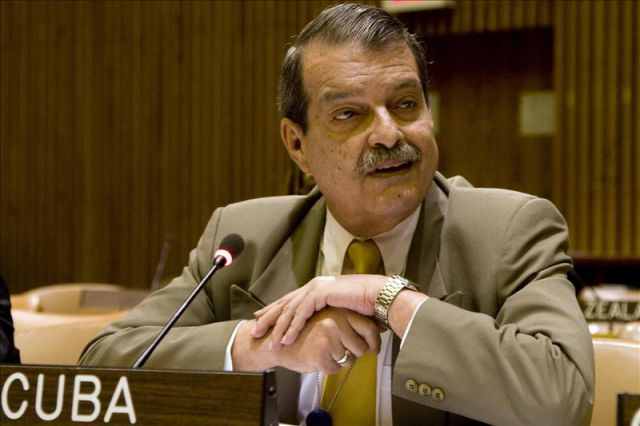
Cuba says it’s proud of its human rights record
Cuba’s reelection last November as member of the United Nations’ Human Rights Council is proof of the Revolution’s prestige in that field, said Vice Foreign Minister Abelardo Moreno on Thursday (March 6).
Speaking in Geneva during the Council’s 25th session, the Cuban diplomat expressed his satisfaction over the results of last year’s HRC Universal Periodic Review, which assesses countries’ economic, social, cultural, civil and political rights. The positive results earned Cuba reelection to the Council.
“Such advances have been possible despite the negative effects of the economic, commercial and financial blockade by the United States against Cuba, which constitutes a massive, flagrant and systematic violation of human rights,” he said, quoted by the news agency Prensa Latina.
Referring to the Second Summit of the Community of Latin American and Caribbean Countries (CELAC), held in Havana in January, Moreno pointed out that its theme was the struggle against poverty, hunger and inequality.
Its final proclamation banned the use of war, force and the threat of force from the region and called for conflicts to be solved peaceably, according to international law.
Moreno also referred to the Cuban antiterrorists who are serving long and unjust sentences in U.S. prisons.
The Five, as they are internationally known, were indicted by a federal court in Florida “on charges that were never proven, during a long judicial process that was plagued by irregularities and violations of [the defendants’] legal and human rights,” Moreno said.
He also denounced the destabilizing acts perpetrated in Venezuela, which, “in addition to violating institutionality, have as their goal to overthrow by force the legally constituted government.”
Moreno reaffirmed Cuba’s support for the search for a negotiated and peaceful solution to the crisis in Syria and reiterated his confidence in Syria’s government and people to settle their problems without foreign interference.
“To Cuba, the principles of sovereignty, territorial integrity and noninterference in the domestic affairs of all states must be defended at all costs because, without them, the United Nations could not survive and the small and weak nations would be abandoned to the mercy of the big and strong ones,” the diplomat said.
The Human Rights Council was created by the United Nations in 2006 to replace the discredited Human Rights Commission. Cuba was elected as one of its first member countries and remained on the Council through 2006, for the two consecutive periods established. Cuba began its current three-year period in January.
[Photo is of Vice Foreign Minister Abelardo Moreno.]


